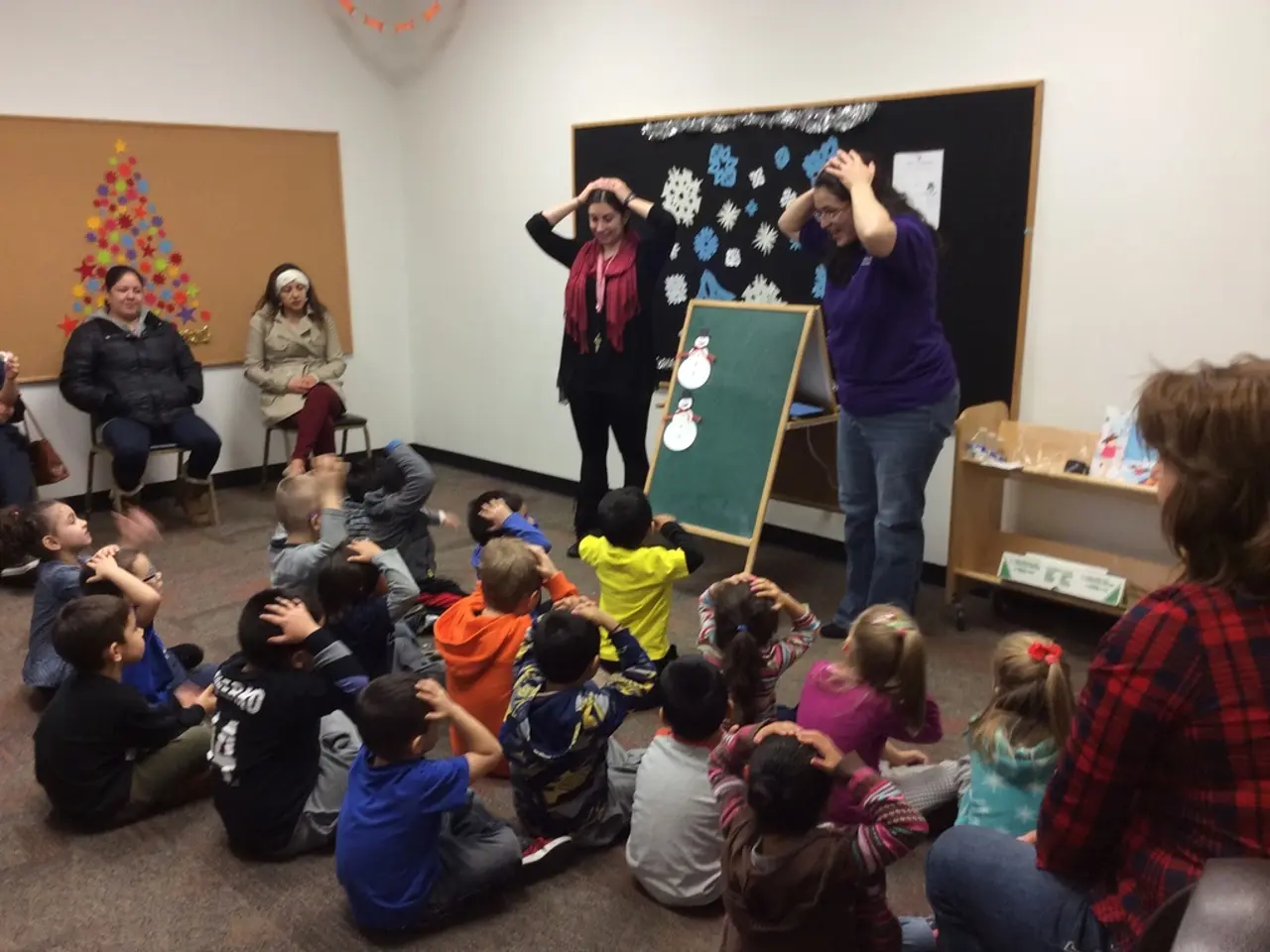Teacher's Influence in Existentialist-Based Learning
In the realm of education, a fresh approach is gaining traction – one that views the teacher not as a purveyor of knowledge, but as a facilitator of self-discovery. Welcome to the world of existentialist education.
At its core, existentialist education empowers students to reflect on their experiences, question their assumptions, and grapple with existential themes such as freedom, responsibility, and the meaning of life. The teacher's role is to guide, not dictate, encouraging critical thinking and fostering an environment where diverse perspectives are respected.
One key method is offering personal choice in curriculum and assignments. By allowing students to explore topics meaningful to them, existentialist education aligns with its focus on individual autonomy and self-definition. Another strategy is using Socratic questioning to promote independent thinking and self-examination, guiding students to confront diverse possibilities and the responsibility of choice, central themes in existential philosophy.
The classroom environment is also crucial. It should respect individuality and authentic relationships, enabling students to engage deeply with themselves and others. This approach encourages students to take ownership of their learning and to develop insight into their individual existence and decisions.
Existentialist education can be challenging, delving into deep and unsettling topics like identity, death, and the meaning of life. To promote critical thinking in a non-dogmatic way, teachers can use Socratic questioning and expose students to multiple philosophical perspectives.
However, this approach is not without its challenges. Teachers must manage the ambiguity of existentialist approaches, emphasising that uncertainty is a natural part of intellectual growth. They must also help students who struggle with self-reflection and introspection by introducing structured reflective practices.
Moreover, teachers must balance freedom and structure, offering flexibility while providing necessary guidance. They must also manage student resistance to responsibility, gradually helping students develop self-reliance.
In an existentialist classroom, the teacher serves as a mentor, guide, and model in moral development, helping students develop a strong sense of integrity and personal responsibility. Practical strategies include encouraging open dialogue, using Socratic questioning, creating a student-centered learning environment, emphasising personal responsibility, supporting emotional growth, promoting reflection through journaling, cultivating an atmosphere of trust, encouraging exploration of meaning through projects, being flexible and open to diverse perspectives, and modelling authenticity.
In essence, existentialist education is not just about learning facts; it's about understanding oneself and the world. It encourages students to develop their own values and beliefs, rather than conform to societal expectations. It's a journey of self-discovery, and the teacher is the compass guiding the way.
- Existentialist education encourages students to reflect deeply on their experiences and question their assumptions, delving into topics like freedom, responsibility, and the meaning of life.
- The teacher's role in existentialist education is to guide, not dictate, fostering an environment that values critical thinking, diverse perspectives, and self-discovery.
- By allowing students to choose their curriculum and assignments, existentialist education emphasizes individual autonomy and self-definition.
- Socratic questioning is a key method used in existentialist education to promote independent thinking and self-examination, helping students grapple with diverse possibilities.
- A respect for individuality and authentic relationships is crucial in the classroom environment of existentialist education, where students engage deeply with themselves and others.
- Existentialist education can be challenging due to its deep and unsettling topics, requiring teachers to manage ambiguity and teach critical thinking in a non-dogmatic way.
- To help students who struggle with self-reflection and introspection, teachers can introduce structured reflective practices such as journaling.
- Balancing freedom and structure is essential in an existentialist classroom, offering flexibility while providing necessary guidance and managing student resistance to responsibility.
- Existentialist education encourages students to develop a strong sense of integrity and personal responsibility, making the teacher a mentor, guide, and model in moral development.
- Existentialist education goes beyond learning facts; it focuses on understanding oneself and the world, helping students develop their own values, beliefs, and a sense of purpose in education, self-development, and personal growth.




